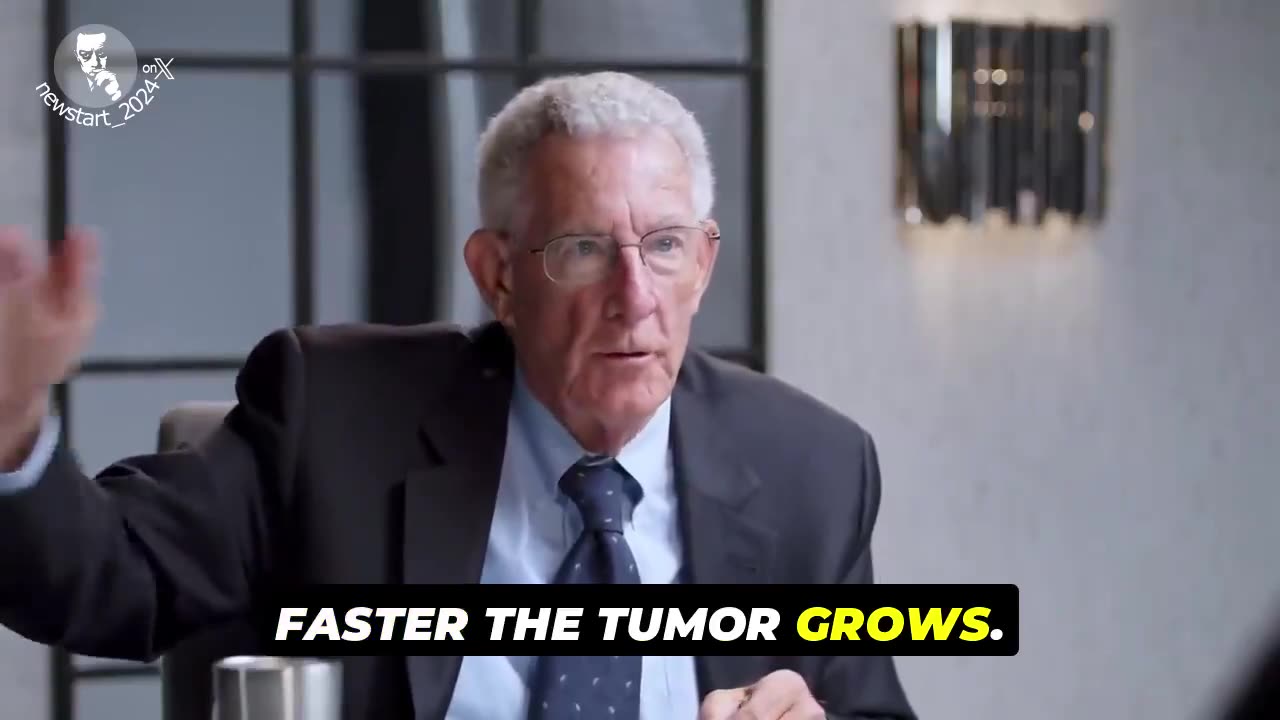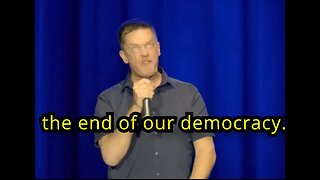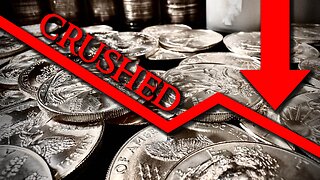Premium Only Content

Dr Thomas Seyfried - The higher your blood sugar, the faster the tumor grows
In his appearance on "The Diary of a CEO" podcast, Dr. Thomas Seyfried, a professor at Boston College, challenges conventional views on cancer by presenting it as a metabolic disease rather than a genetic one.
Dr. Thomas Seyfried: "Lynda Nebling was a PhD nursing student at Case Western Reserve University in Ohio, and she took these two little hopeless kids, brain cancer, we call hopeless cases, when they have no... predictability of long-term survival. And she gave them a ketogenic diet, the lower blood sugar, and she was able to rescue these kids."
"One eventually died. The other one was lost to follow-up. And she said her strategy was based on what Otto Warburg had said about glucose and cancer. So then I said, Warburg. I said, who the hell? What? Let me go back and check out who this guy was and what he did, because I was seeing similar things in the mouse with that drug that was lowering glucose and we were shrinking these tumor cells."
"And we published a paper, one of the first ever papers linking that how high your blood sugar is determines how fast your tumor will grow in the mice. And now how this has been replicated in all human cancers. The higher your blood sugar, the faster the tumor grows, the lower the blood sugar, the slower the tumor grows."
"Undeniable for all different human mouse cancers. Wow. So Warburg had said this a long time ago, back in the 1920s. He was taking slices of all kinds of human and rat, mouse tumors, and slicing them up. And he noticed something really strange about these cancers. They take in less oxygen compared to the normal tissue from which they came. Wow, so they're kind of like oxygen deprived."
"And they were throwing out this lactic acid waste product that he was saying. And they were taking in so much more glucose than the normal. So the normal cells take in just a little bit of glucose, and they can make tremendous energy from a tiny amount."
"This guy was taking in huge amounts of glucose, but not fully metabolizing it to CO2 and water, but dumping it out as lactic acid, which is a breakdown product of glucose that is not fully metabolized in the cell. Wow, he said, this is unbelievable. And then he did all kinds of tissue. I looked at his data."
"It was unbelievable. He was cutting humans, mice, rats, and seeing the same thing over and over again. And he was saying the origin of cancer has to do with something. in the ability of the mitochondria, the organelle, to generate efficient energy from oxygen."
"It's the part of the cell that creates energy through oxidative phosphorylation, which is burning energy using oxygen. It's an engine, a very highly efficient engine. This is an organelle. You have to realize we have the cell."
"And we have a nucleus that everybody knows about. this nucleus, and then we have all these little organelles in there. We have lysosomes and we have the mitochondrion, which is like a spaghetti network inside the cell. They fuse, it's actually a second living, it's a second living organism inside our cells."
"And to simplify what they do, the mitochondria, they convert oxygen and glucose into energy? Yes, they combust energy. They take the foods that we have carbon-hydrogen bonds, okay, and we break those down inside our mitochondria."
"And when we break those bonds down, we create a hydrogen gradient, and we dissipate that gradient through an impeller mechanism that generates energy like crazy. It's unbelievable. Very efficient, highly efficient. But the cancer cell has corruption in that system. But it doesn't happen overnight."
"As Warburg said, if you break that system too acutely and too fast, the cell will die. It doesn't have the... So you have to have two things to get from oxidative phosphorylation to energy with minimal oxygen fermentation."
"From a normal cell to a cancer cell doesn't happen overnight. It's a chronic damage to the ability of that organelle inside the cell to generate efficient energy. So all we have to know with cancer is that how are they growing so rapidly? Why are they going out of control? How come it's so hard to kill them?"
"Because as long as you have those fermentable fuels that drive this ancient fermentation pathway, they will continue to grow. They're very hard to kill. And the fermenting fuels are glucose and glutamine."
-
 1:45
1:45
Asher Press
1 day agoJim Breuer Roasts Democrats Post Election
517 -
 LIVE
LIVE
Sarah Westall
1 hour agoWeaponized Chaos – Worst in Modern History; Changing Geopolitical Landscape w/ Andy Schectman
411 watching -
 LIVE
LIVE
SpartakusLIVE
2 hours ago#1 Hacker/Scammer PLUNGES into CRYPTO || !crypto !spartacoin
258 watching -
 53:15
53:15
Kimberly Guilfoyle
5 hours agoCalifornia Residents Demand Answers, Live with Rep Vince Fong, Mike Davis, and Paul Peterson | Ep. 188
40.8K55 -
 1:49:51
1:49:51
Redacted News
4 hours agoEMERGENCY! 10 MILLION UNDER FIRE WARNING & 100 MPH WINDS, NEWSOM UNVEILS CALIFORNIA 2.0 PLAN
125K168 -
 49:33
49:33
Candace Show Podcast
4 hours agoI Respond To Mr. And Mr. Macron | Candace Ep 131
99.6K262 -
 1:58:04
1:58:04
Revenge of the Cis
5 hours agoEpisode 1429: Catch And Release
37.4K3 -
 2:00:01
2:00:01
Film Threat
10 hours agoVERSUS: HOLLYWOOD IS STILL ON FIRE | Film Threat Versus
22K1 -
 12:33
12:33
Silver Dragons
5 hours agoSilver Price Crushed Today - NEW TREND STARTING?
20.2K2 -
 1:02:03
1:02:03
In The Litter Box w/ Jewels & Catturd
23 hours agoRecall Newscum & Bass! | In the Litter Box w/ Jewels & Catturd – Ep. 718 – 1/13/2025
97.2K36